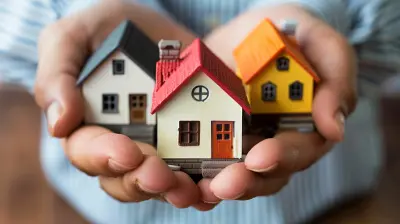How Modular Homes Are Disrupting the Traditional Housing Market
22 June 2025
Let’s talk about something that’s shaking up the way we think about homes. You’ve probably noticed how real estate is changing—prices going up, delays in construction, shortages of materials, and all the stress that comes with building or buying a new house. Now, imagine if there was a smarter, faster, and more affordable way to own your dream home.
Welcome to the world of modular homes.
These aren't your grandpa’s trailer homes. Modular homes are revolutionizing the housing industry with innovation, speed, and affordability. More and more people—from first-time buyers to real estate investors—are turning to modular construction. Curious why? Let’s break it down.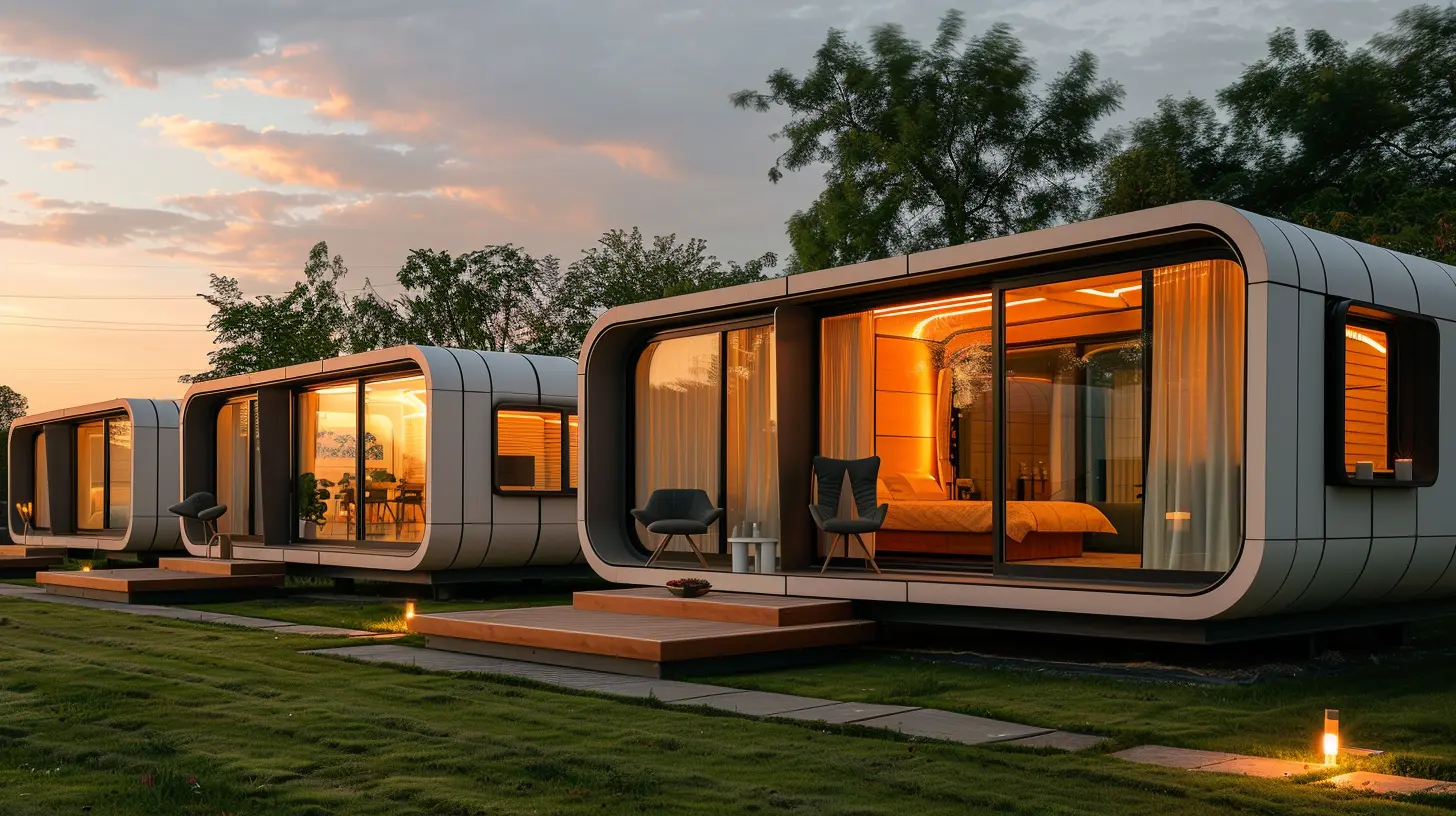
What Exactly Is a Modular Home?
Before we get into the juicy details, let’s clear up the confusion.A modular home is built in sections (or modules) off-site, in a factory-controlled environment. Once completed, these sections are transported to the home site and assembled on a permanent foundation—kind of like Lego pieces, but way more sophisticated.
Here’s the key: Modular doesn’t mean mobile. These homes meet—or often exceed—local building codes. In other words, they’re just as durable and long-lasting as traditional "stick-built" homes.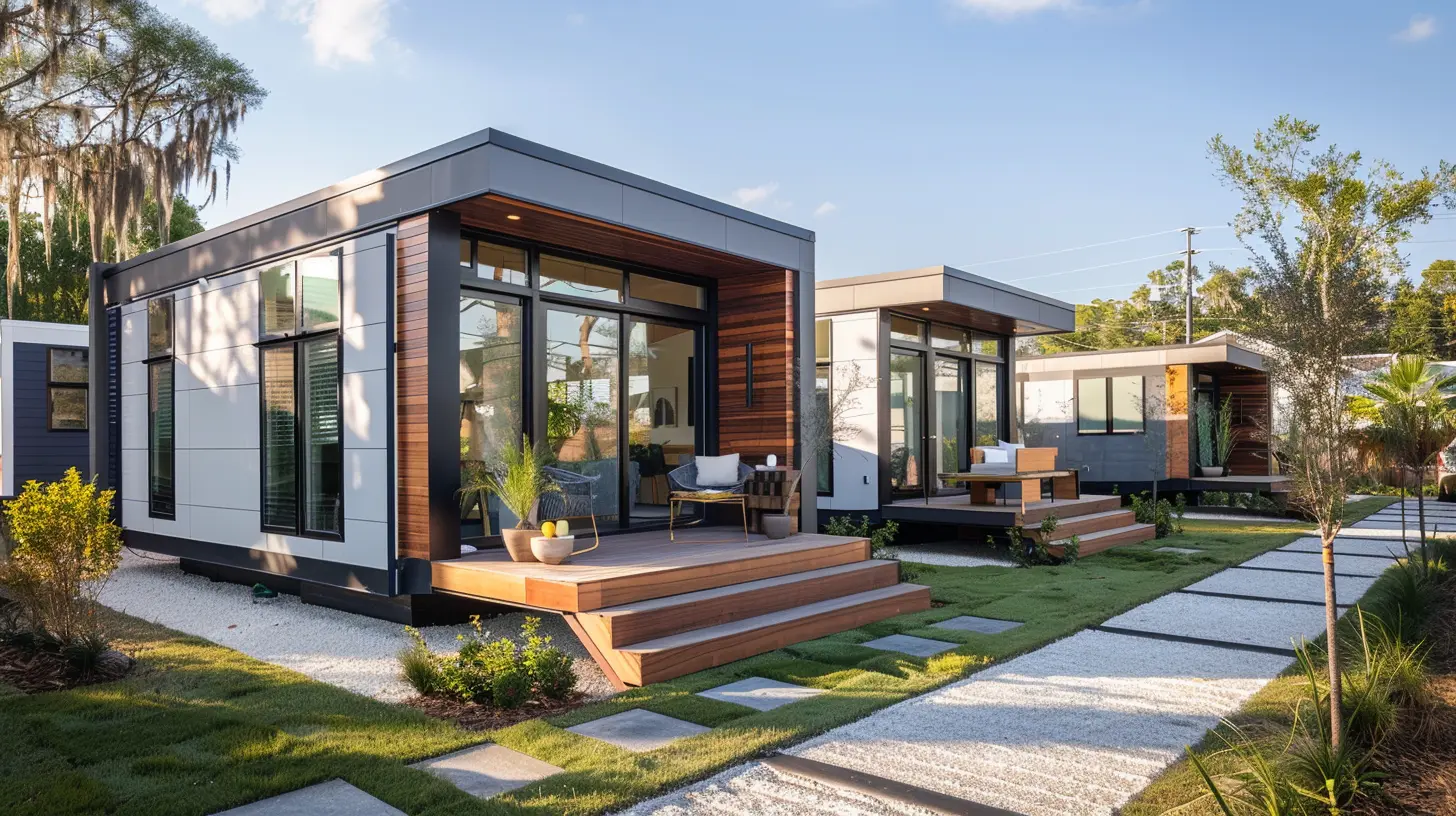
Why Modular Homes Are Taking Over
You might be thinking, “Okay, cool, but why all the fuss?” Well, there are a few big reasons modular homes are turning heads in the real estate world.1. Speedy Construction
Time is money, right? Traditional homes can take 6–12 months (or longer!) to build. Modular homes? They typically go up in just 8 to 16 weeks.Because most of the work is done in a factory, there are fewer weather delays, no on-site scheduling headaches, and no drawn-out construction nightmares.
Think of it like ordering a pizza versus growing your own ingredients and cooking from scratch. One is delicious and fast; the other is... time-consuming and messy.
2. Cost-Effective
Let’s be honest—housing is expensive. But with modular construction, you can save 10% to 20% compared to traditional homes.Why? Factories buy materials in bulk, reduce waste, and use streamlined processes. And since labor costs are lower (and construction time is shorter), those savings go back into your wallet.
Want a quality home without the price tag of custom construction? Modular might be your golden ticket.
3. Eco-Friendly and Energy Efficient
Building a home doesn’t have to wreck the planet. Modular homes are often built with sustainability in mind.- Less material waste
- Tighter construction = better energy efficiency
- Options for solar panels, energy-star appliances, and eco materials
So not only do you save money, but you also reduce your carbon footprint. That’s a win-win.
4. Excellent Quality Control
Let’s face it—traditional construction can be hit or miss. But in a modular factory, everything is built under strict supervision using precision tools.Each module goes through multiple inspections before ever leaving the facility. That kind of quality control means fewer surprises and more peace of mind.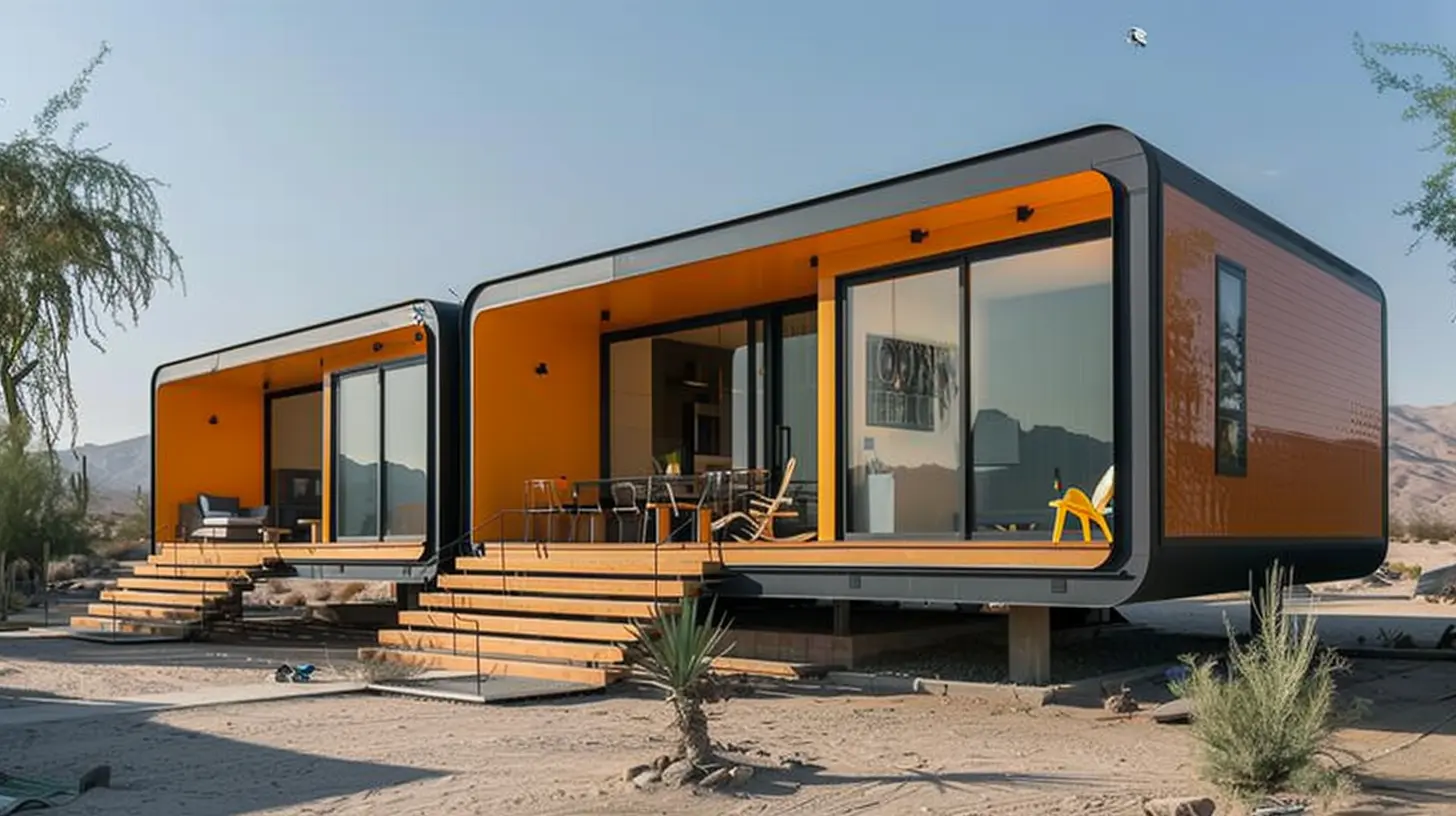
Shifting Buyer Preferences
Today’s homebuyers aren't just looking for four walls and a roof. They’re looking for something smarter, faster, and tailored to their lifestyle. Modular homes check all those boxes.- Want modern designs? ✅
- Need a home office? ✅
- Looking for a cozy tiny home or a multi-story family pad? ✅✅✅
Modular homes offer incredible design flexibility, from minimalist studios to luxurious custom layouts. And thanks to better architecture and advanced engineering, they don’t all look the same either.
Millennials and Gen Z buyers, in particular, are embracing modular living. They want homes that are customized, efficient, and affordable—and modular delivers that in spades.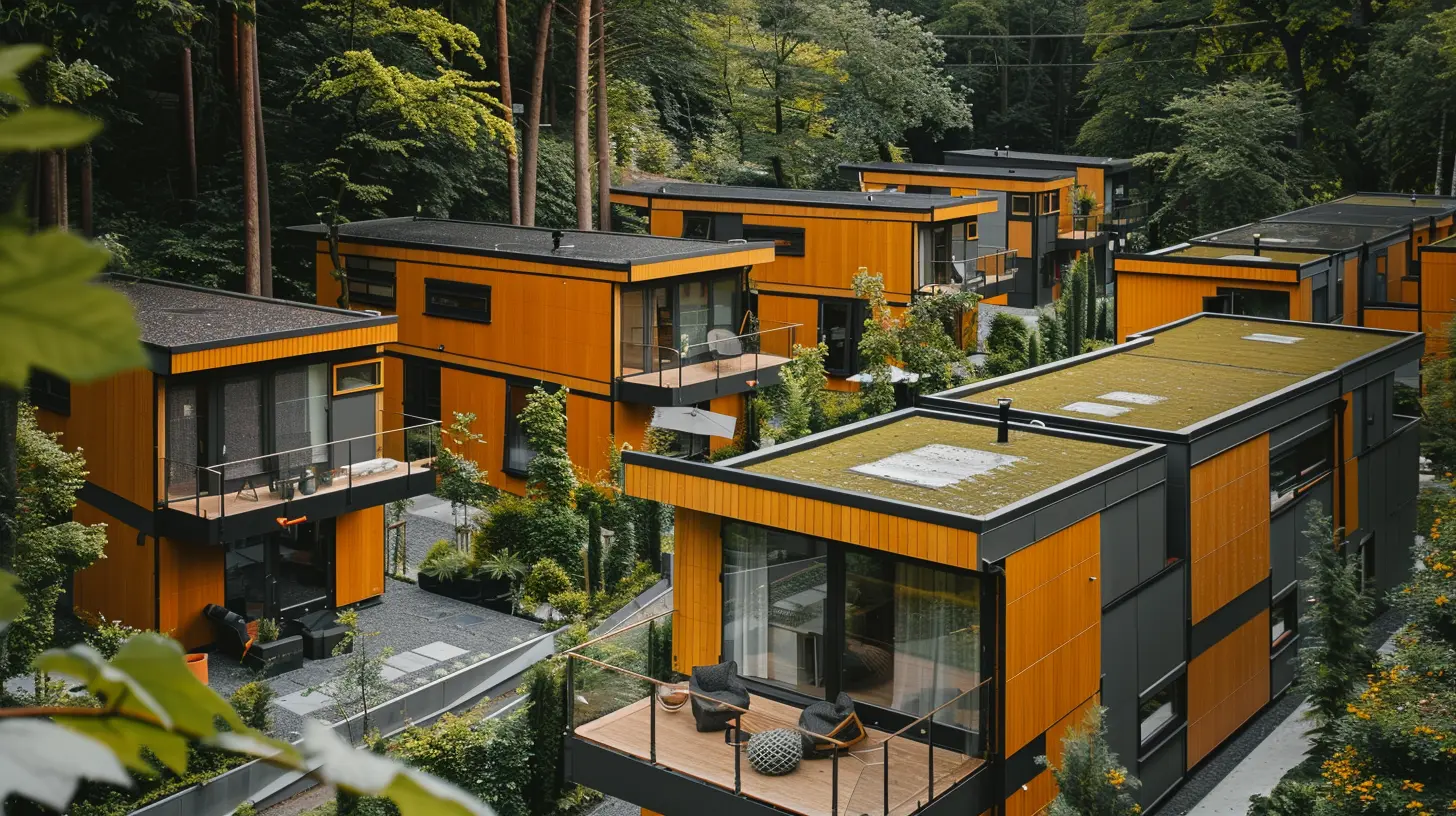
The Impact on the Traditional Housing Market
So, how exactly are modular homes disrupting the housing game?1. Lower Entry Barrier for Homeownership
Let’s be real: Getting into the housing market is getting tougher every year.But modular homes offer a more accessible route to homeownership. For people who are tired of renting but can’t afford a $500,000 traditional home, going modular could put the dream within reach.
That means more first-time buyers are saying goodbye to landlords and hello to front porches.
2. Changing the Role of Builders and Developers
Modular construction is shaking up the roles of builders, contractors, and developers. Traditional builders are starting to diversify and include modular options in their offerings.Developers, too, are using modular units to build entire communities faster and cheaper than ever before. We’re talking affordable housing developments, student housing, senior living, and even hotels—all built using modular construction.
3. Influencing Lending and Financing Options
Banks and mortgage companies used to be skeptical of modular homes. But times are changing.Lenders now recognize that these homes hold their value just like site-built houses. As a result, more financing options are opening up, making it easier to buy one.
Plus, appraisers are catching up too—giving fair market value assessments instead of outdated estimates.
Real-Life Example: Modular Success Story
Let’s talk about someone like Sarah, a 32-year-old graphic designer living in a city where the average home costs upwards of half a million dollars. She wanted a home of her own—modern design, energy-efficient, not ridiculously priced.Traditional construction quotes came in at over $450,000. But with a modular home builder? She got a sleek, 3-bedroom, 2-bath home for $280,000—all completed in under 3 months.
Her story isn’t unique. It's becoming the norm.
Are Modular Homes Right for You?
Great question. While modular homes offer a ton of benefits, they aren’t for everyone. Here’s a quick breakdown:Pros:
- Faster build time- Lower construction costs
- Quality and energy efficiency
- Customization options
- Modern design appeal
Cons:
- Limited builders in some areas- Land purchase still required
- Financing process can be slightly different
- Zoning restrictions in certain cities/towns
It’s worth doing your homework. But if you value affordability, style, and speed, modular homes are well worth a look.
What the Future Holds for Modular Housing
The buzz isn’t going away anytime soon. In fact, experts say modular homes could double their market share in the next ten years.With tech advancements like 3D printing, smart home integration, and even AI-powered design software, the modular movement is just getting started.
Governments are also stepping in. Some cities are pushing modular development as a fix for housing shortages and climate change goals.
In short? The future of housing might be... modular.
Final Thoughts
The traditional housing market isn't going extinct—but it's definitely facing some serious competition. Modular homes are disrupting the old ways with smarter, faster processes and a buyer-first mindset.Whether you're a hopeful first-time buyer, a growing family, or an investor eyeing your next move, modular homes open up new possibilities.
They’re more than a trend—they’re a movement. And as the demand for affordable, efficient, and beautiful homes continues to grow, modular homes are clearly leading the charge.
So next time someone mentions "prefab," don’t roll your eyes—lean in. Because the future of housing just might be modular.
all images in this post were generated using AI tools
Category:
Real Estate TrendsAuthor:

Cynthia Wilkins
Discussion
rate this article
2 comments
Clover McDowell
Modular homes offer innovative solutions, challenging norms and making housing more accessible for all.
November 7, 2025 at 5:49 AM

Cynthia Wilkins
Thank you! Modular homes truly are transforming the housing landscape by increasing accessibility and redefining what we consider traditional living.
Evren Patel
Modular homes: a clever solution for today!
June 23, 2025 at 11:20 AM

Cynthia Wilkins
Thank you! Modular homes indeed offer innovative solutions that address affordability and efficiency in today’s housing market.
